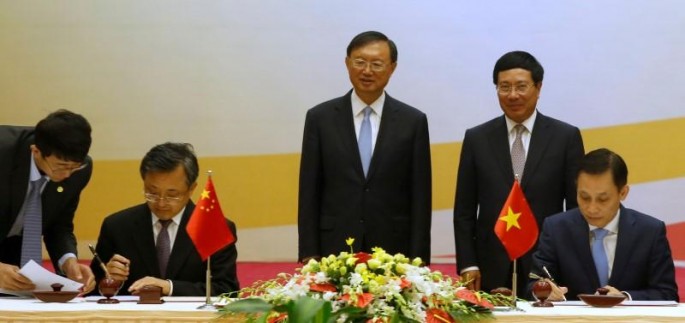China and Vietnam have agreed to settle maritime disputes “appropriately” during Chinese State Councilor Yang Jiechi’s high-level state visit to the country ahead of the incoming international ruling.
According to The Diplomat, China has been working over time to gain other countries' support, whether or not they have a vested interest in the South China Sea territorial grapple.
On Monday, Chinese State Councilor Yang did just that when he met with Vietnam's President Tran Dại Quang as well as General-Secretary Nguyen Phu Trong of the Vietnamese Communist Party.
China-Vietnam Agreement
Reuters said that Yang's recent visit to Vietnam was "aimed at strengthening historically close relations" during a significant time when disputes over territories in the South China Sea have strained them.
During the meeting, the Vietnamese dignitaries emphasized that there is a need for joint agreements to prevent things from "getting out of hand."
To do so, China and Vietnam agreed to control conflicts peacefully, improve negotiation mechanisms, and find long-term solutions which concerned countries would accept.
International Arbitration Ruling
While the Vietnamese government denies any relation of Yang's state visit to Hanoi, The Diplomat noted that it is "an instance of particularly high-level outreach" to a country that has vested interest in China's claims in the South China Sea.
Citing experts, Reuters believes that Yang would not attempt to seek sympathy from Vietnam because of trust issues between the two nations that history has proven over time.
Still, the state visit becomes a significant event for the maritime territory grapple since it was made ahead of the incoming Permanent Court of Arbitration ruling for a South China Sea case filed by the Philippines.
China has repeatedly called for bilateral talks with countries whose territories are covered in the Asian giant's nine-dash line territory, which it allegedly based on an ancient map of the Middle Kingdom.
China maintains its refusal to undergo any arbitration and claims to have the backing of some 47 countries, Reuters said.
It has also publicly called for talks with the Philippines' incoming administration under tough-talking former Davao Mayor Rodrigo Duterte, who told Reuters that he would not be making any statement about the international ruling before it is released.
Meanwhile, some observers like Austrian expert Padraig Lysaght believes that the arbitration will not be effective if not all involved parties agreed on it.
"It is a principle of international law that all sides must agree on the arbitration. Otherwise, the result of the arbitration is not binding," he said in an interview cited by Shanghai Daily.



























